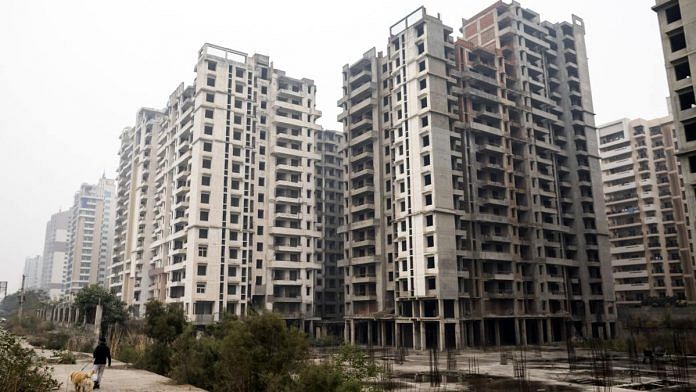New Delhi: After being on the drawing board for over five years, the Union Cabinet Wednesday approved the Model Tenancy Act that will protect the interest of both tenants as well as landlords.
The Act proposes that the rent and duration of tenancy will be fixed by mutual consent between the owner and tenant through a written agreement.
According to officials in the housing ministry, which is piloting the model Act, there is no monetary ceiling under the law, which enables parties to negotiate and execute the agreement on mutually agreed terms. “It will give confidence to landlords to let out their vacant premises,” the officials said.
The revision of rent between the landlord and the tenant will be in accordance with the terms of the tenancy agreement. Before revising a rent, landlords will have to give a written notice three months in advance.
To safeguard the interest of the landlord, the model law has provisions to deter tenants to overstay after the expiry of their tenancy.
If a tenant does not vacate the premises after the tenancy expires, the landlord will be entitled to compensation, which will be double the monthly rent for two months and four times the monthly rent after that.
Also read: To be the next China, India needs a new housing plan
Since it’s a model act, it’s not binding on states
However, there is a catch as far as implementing the model Act is concerned.
Since it’s a model law — as land is a state subject — the onus will now be on the states to accept or reject it. Model laws are not binding on states.
The Centre will circulate the model law to all states and Union Territories for adaptation by either enacting their fresh legislation or amending their existing rental laws in accordance with the central law.
According to senior ministry officials, it will be applicable prospectively and will not affect existing tenancies. They added that the law will enable unlocking a large number of rental stock.
The law aims to help overhaul the legal framework with respect to rental housing across the country. At present, many states have their own rent laws but the laws have become archaic over a period of time and fail to serve their purpose.
One of the main reasons for rental housing not taking off in India was because of archaic rent control laws that are very restrictive. Property owners were apprehensive about letting out their premises fearing tenants will not vacate it, one of the officials said.
Also read: Faster, cheaper, and high-quality — these 3 countries are embracing 3D printed homes
A rent authority, rent court and rent tribunal
The model law proposes setting up a rent authority to be headed by an officer of the rank of deputy collector and will be set up by the district collector, with the approval of the respective state government.
To ensure speedy redressal of disputes, the model law also proposes setting up of a rent court and rent tribunal. All disputes will be heard at rent courts that states will have to set up and the cases will have to be disposed off in 60 days.
With this law, civil courts will no longer hear such cases, which was being done till now.
Once the law is implemented by states, it will become mandatory for both the landlord and the tenant to inform the rent authority after getting into an agreement. A property will be rented only after the landlord and tenant enters into a written agreement on mutually agreed terms.
This will ensure that a landlord does not arbitrarily increase the rent in variance with what has been agreed to in the agreement. It will also ensure that the tenant is not evicted at the whim of the landlord.
Currently, thousands of rent-related disputes are pending in courts across India.
The law also mandates that security deposit in case of residential properties is capped to a maximum of two months rent. For commercial properties, security deposits will be capped to a maximum of six-month’s rent. Landlords will have to refund the security deposit to the tenant when the flat is vacated.
“This Act can fuel the rental housing supply pipeline by attracting more investors, and more rental housing stock will help students, working professionals and migrant populations to find urban accommodation, especially in Covid-19 like exigencies,” Anuj Puri, chairman of ANAROCK property consultants, told ThePrint.
Also read: Mumbai residential prices seen falling after Uddhav govt slashes taxes for a year



